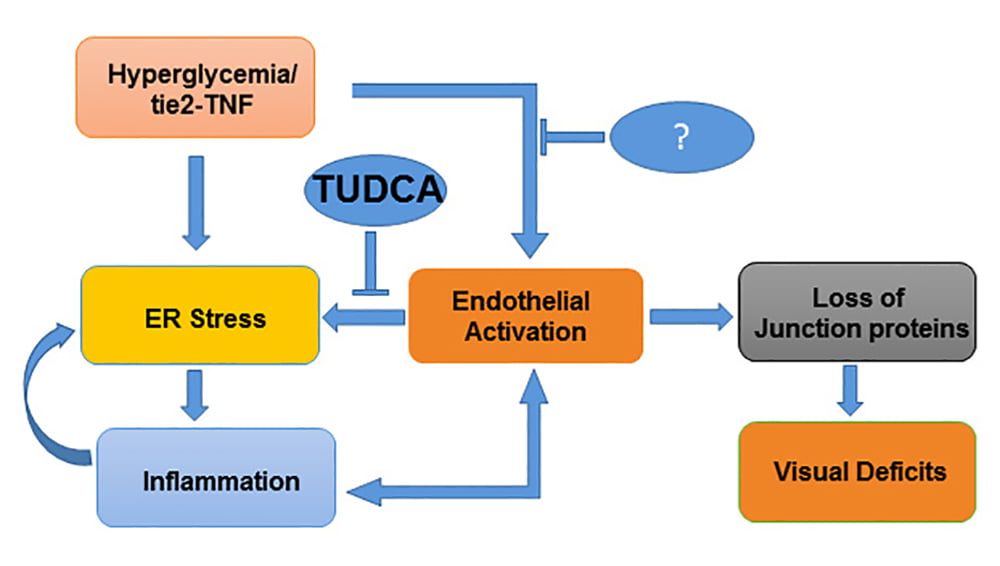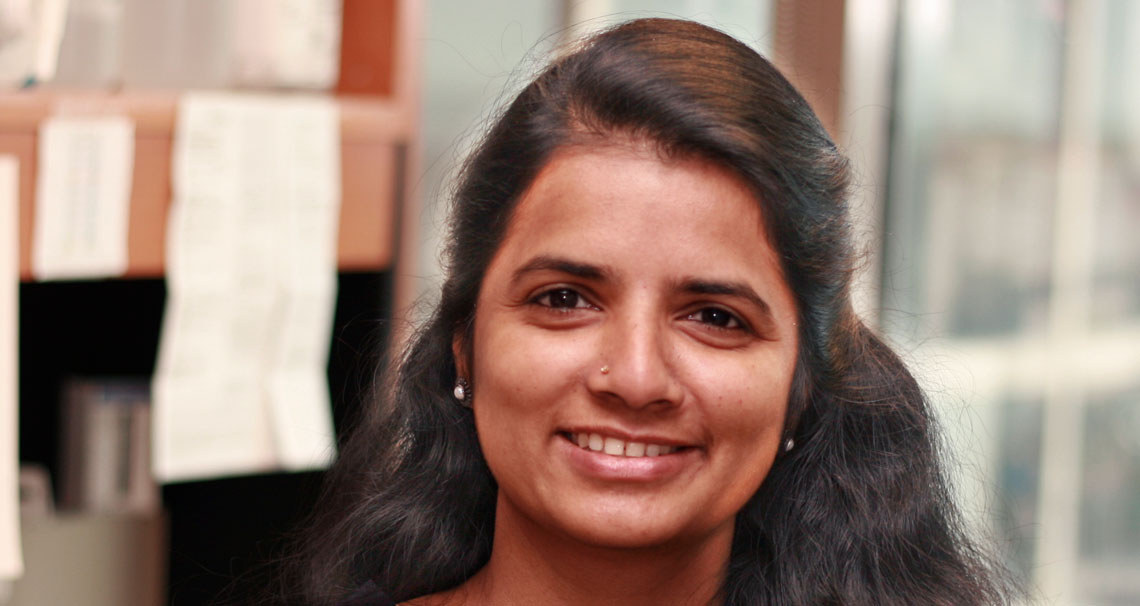 Journal of Cellular Biochemistry: Critical role of endoplasmic reticulum stress in chronic endothelial activation – induced visual deficits in tie2-tumor necrosis factor mice. (October 2018: Volume 119, Issue 10)
Journal of Cellular Biochemistry: Critical role of endoplasmic reticulum stress in chronic endothelial activation – induced visual deficits in tie2-tumor necrosis factor mice. (October 2018: Volume 119, Issue 10)
Dr. Lenin is a graduate of the University of Madras, India, where she received her PhD in Biochemistry and Molecular Biology Ophthalmology before coming to the United States. Currently, Dr. Lenin is training as a postdoctoral researcher at the University of Tennessee under the mentorship of Dr. Rajashekhar Gangaraju, who describes this project as an outgrowth of initial studies conducted in his laboratory and that of Dr. Lenin’s PhD thesis work. Dr. Gangaraju’s studies are focused on the investigation of cellular and molecular principles underlying tissue regeneration, angiogenesis and inflammation.
Dr. Lenin has distinguished herself through professional memberships and academic recognitions. She has presented papers at the ARVO annual conferences and published her work in peer reviewed journals. She is a recipient of the “Postdoc Achievement Award 2017-2018 (junior category)” from the UTHSC Postdoc Association, in appreciation of her consistent commitment and capabilities demonstrated in her area of research.
Dr. Gangaraju has high praise for Dr. Lenin, which he included in his support letter during the application process for the Callahan Scholar Award, “As I have interacted with Dr. Lenin over the time of her work here at the University of Tennessee, and during the process of writing this application, I have come to the conclusion that she will become a superb researcher in her own right.”
Raji Lenin, Peter G. Nagy, Shanta Alli, Department of Ophthalmology, University of Tennessee Health Science Center; Vidhya R. Rao, Department of Molecular Pharmacology and Experimental Therapeutics, Loyola University; Matthias A. Clauss, Department of Cellular & Integrative Physiology, Indiana University; Uday B. Kompella, Skaggs School of Pharmacy and Pharmaceutical Sciences, University of Colorado; Rajashekhar Gangaraju
Department of Ophthalmology and Department of Anatomy & Neurobiology, University of Tennessee Health Science Center.
This study conducted with IRRF support – Raji Lenin, PhD, 2017 Alston Callahan, MD Postdoctoral Scholar.
CONCLUSION: Using a constant endothelial activation animal model of diabetes, the team showed that chronic inflammatory activation of vascular endothelial cells and hyperglycemia promotes visual deficits downstream of endoplasmic reticulum (ER) stress signaling in a feed forward loop of proinflammation and loss of endothelial junction proteins. Based on these and the invitro analysis, future studies aiming at controlling ER stress pathways and endothelial activation may help protect against disruption of junctional proteins in retinal endothelial cells and possibly aid in the recovery of visual deficits observed in our diabetic retinopathy (DR) model. (below)





